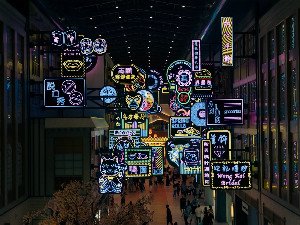Asep Sutarman, Levina Chan, Antoni S.
The Effect of Using Augmented Reality in Science Learning on Middle School Students' Concept Understanding
Introduction
The effect of using augmented reality in science learning on middle school students' concept understanding. Discover how Augmented Reality (AR) significantly boosts middle school students' science concept understanding. This study proves AR is an effective, innovative tool for science education curriculum.
Abstract
This study aims to explore the effect of using Augmented Reality (AR) technology in science learning on secondary school students' concept understanding. AR technology allows the integration of the virtual world with the real world through interactive and dynamic visualization, so it is expected to increase learning interest and understanding of science concepts among students. The method used in this study was a quasi-experiment with a pretest-posttest control group design. The research sample consisted of 120 grade X students in one of the secondary schools who were randomly divided into experimental and control groups. The experimental group used AR application as part of science learning, while the control group used conventional methods. Data were collected through concept understanding tests administered before and after the intervention. The results of the data analysis showed that there was a significant increase in the concept understanding of students using AR compared to the control group. The mean posttest score of the experimental group was statistically higher than that of the control group (p < 0.05). This finding indicates that the use of AR in science learning is effective in improving students' concept understanding. This study suggests that AR technology can be integrated into the science learning curriculum as an innovative and effective tool. In addition, further research is recommended to explore other aspects of using AR in education as well as its impact on students' cognitive and affective skills.
Review
This study addresses a highly pertinent and timely topic: the integration of Augmented Reality (AR) in science education to enhance students' concept understanding. The rationale for using AR, grounded in its capacity for interactive and dynamic visualization, is clearly articulated and aligns with contemporary pedagogical approaches. The research question is well-defined, and the study's objective to explore the effect of AR on concept understanding is straightforward and important for advancing our understanding of technology-enhanced learning. However, a minor but crucial inconsistency is noted between the title, which specifies "Middle School Students," and the abstract, which refers to "Grade X students" and "secondary school students." Clarifying the precise target age group is essential for accurate categorization and relevance. Methodologically, the study employs a robust quasi-experimental design with a pretest-posttest control group, which is appropriate for evaluating educational interventions in real-world settings. The sample size of 120 students, randomly divided into experimental and control groups, provides a reasonable basis for statistical comparison. The data collection using concept understanding tests is directly aligned with the study's objective. The findings clearly indicate a significant and positive effect of AR, demonstrating that the experimental group achieved statistically higher posttest scores in concept understanding compared to the control group (p < 0.05). This result strongly supports the conclusion that AR is an effective tool for improving concept understanding in science learning. The study's conclusion, advocating for the integration of AR into the science learning curriculum, is a significant and valuable recommendation based on its empirical findings. The authors' suggestion for further research into other aspects like cognitive and affective skills is well-placed and opens avenues for a more comprehensive understanding of AR's impact. To further strengthen the implications, future work could delve into the specific mechanisms through which AR enhances understanding—for example, by reducing cognitive load, providing concrete representations of abstract concepts, or increasing intrinsic motivation. Additionally, practical considerations regarding the scalability of AR implementation, such as required infrastructure, teacher training, and the cost-effectiveness of various AR applications across different science topics, would be valuable for educational practitioners contemplating its adoption.
Full Text
You need to be logged in to view the full text and Download file of this article - The Effect of Using Augmented Reality in Science Learning on Middle School Students' Concept Understanding from International Journal of Educational Insights and Innovations .
Login to View Full Text And DownloadComments
You need to be logged in to post a comment.
Top Blogs by Rating
Beyond the Forbidden: When His...
By Sciaria
Beyond Silicon: How Living Mat...
By Sciaria
The Gamification of Governance...
By Sciaria
Favorite Blog
Big Data's Echo Chamber: The U...
By Sciaria
Andragogy: The Secret to Engag...
By Sciaria
Beyond the Chart: The Nurse's...
By Sciaria
Related Research
Bi-bazilevic functions based on hurwitz-lerch zeta function associated with exponential pareto distribution
Kritik atas tashkik jalaluddin rakhmat terhadap validitas hadis puasa asyura
AvaliaÇÃo formativa na aprendizagem baseada em problemas
Share
Notice Board
- DIGITAL LEADERSHIP AND DIGITAL TRANSFORMATION: THE ROLE OF CHANGE READINESS, PERSON-ORGANIZATION FIT, AND PERSON-JOB FIT
- TANTANGAN GLOBAL: DINAMIKA EKONOMI DAN POLITIK DALAM ERA MODERN
- ANALYSIS OF FINANCIAL MANAGEMENT OF VILLAGE-OWNED ENTERPRISES (BUMDES) BASED ON GOVERNMENT REGULATION NUMBER 11 OF 2021 (CASE STUDY IN NIAMPAK VILLAGE, BEO SELATAN DISTRICT, TALAUD ISLANDS REGENCY)




